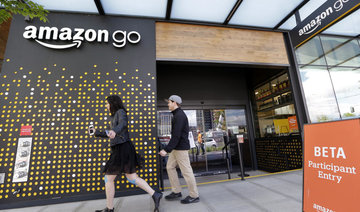SAN FRANCISCO: Amazon.com Inc. said it has halted planning for a new office building in Seattle and might sub-lease rather than occupy another future tower downtown, pending a city council vote on a proposed tax on top businesses.
Amazon’s decision puts a question mark on more than 7,000 new jobs at those buildings that council members might be loath to cost the city. Construction work and other businesses that would have catered to the world’s largest online retailer could be at risk too.
“Pending the outcome of the head tax vote by City Council, Amazon has paused all construction planning on our Block 18 project in downtown Seattle and is evaluating options to sub-lease all space in our recently leased Rainer Square building,” Amazon’s Vice President Drew Herdener said in a statement.
The council is scheduled to vote on the proposal on May 14.
“I’m deeply concerned about the impact this (Amazon’s)decision will have on a large range of jobs,” the Seattle Times quoted Mayor Jenny Durkan as saying on Wednesday.
Durkan’s office did not immediately respond to a Reuters request for comment.
Amazon’s rapid growth has transformed Seattle’s South Lake Union district, replacing warehouses and parking lots with offices towers, highly paid tech workers and expensive eateries. The growth has contributed to an economic boom and rising rents.
Communities across North America are vying for a similar investment from Amazon. Amazon has said it will spend more than $5 billion and create up to 50,000 jobs in the city it chooses for its second headquarters, to be announced this year.
Seattle City Council in April proposed a tax plan affecting the city’s roughly 500 largest businesses.
The proposal, an employee hours tax that would transition to a payroll tax in 2021, would generate $75 million per year for Seattle, most of which would go to building affordable housing.
The efficacy of the specific proposal is unclear.
Seattle has almost doubled its funding for affordable housing and homeless services programs since 2013 to $63 million per year, according to the report in the Seattle Times.
Amazon halts plan for office tower in Seattle over proposed tax
Amazon halts plan for office tower in Seattle over proposed tax

Poland expects trade with Saudi Arabia to grow to $10 billion, finance and economy minister tells Arab News

- Andrzej Domanski says his country’s companies are looking for reliable partners like Saudi Arabia
- Highlights opportunities in clean energy, ICT, food security and construction cooperation on Riyadh visit
RIYADH: Saudi Arabia’s pace of transformation, its economic ambition under Vision 2030, and its role as Poland’s biggest Middle Eastern trading partner are driving a new phase in bilateral relations, Andrzej Domanski, Poland’s finance and economy minister, has said.
Speaking to Arab News during a visit to Riyadh on Monday, Domanski discussed how the two nations might expand their trade ties, the sectors where Polish businesses enjoy an edge, and the potential for broadening the bilateral relationship.
“We have better and better economic relations with the Kingdom of Saudi Arabia. We will reach $10 billion in our trade,” Domanski said, describing Saudi Arabia as a “reliable partner” at a time when Polish companies are actively seeking diversification and new markets.
His visit comes as Saudi-Polish economic ties deepen beyond a historically oil-focused relationship into a broader partnership spanning energy transition, technology, construction, food security and potentially defense cooperation.
This evolution mirrors Saudi Arabia’s Vision 2030 diversification drive and Poland’s emergence as one of Europe’s fastest-growing large economies.
Domanski said Riyadh itself offered a powerful visual symbol of Saudi Arabia’s economic momentum.
“I must say that it’s my first visit to Riyadh and I’m really impressed,” he said. “I’m impressed by the pace of development. The thousands of cranes in the city. It is also a proof of how quickly Saudi Arabia is developing.”
Bilateral trade between Saudi Arabia and Poland has expanded rapidly in recent years, driven largely by energy flows. Saudi Arabia is now Poland’s main crude-oil supplier, accounting for roughly 60 percent of Poland’s oil imports.
Trade volumes have risen from about $7 billion in 2022 to around $8.5 billion in 2023, with Domanski predicting the $10 billion mark will soon be reached.
“We are, of course, importing crude oil. But we’d like to together search for new business opportunities for both Saudi and, of course, Polish companies,” he said.
Domanski argued that growth prospects make the country an attractive destination for Saudi investment.
“On our side, we are also doing pretty well. We are the fastest growing large European economy,” he said. “This year we will work in the G20 format. This is because last year we joined the Group of the 20 biggest economies in the world. And we are frankly proud of that.”
Inflation, he added, has fallen sharply. “Inflation went down significantly, 2.5 percent. Very reasonable. A reasonable level. Investment started to pick up,” he said, pitching Poland as a stable European base for Saudi capital.
A recurring theme of Domanski’s visit was the alignment between Poland’s development priorities and Saudi Arabia’s Vision 2030 agenda.
“Our companies, our economy, are fully aligned with the ambitious Vision 2030 that is realized here,” he said.
Energy cooperation remains central, anchored by Saudi Aramco’s stake in the Lotos refinery in Gdansk — the largest Saudi direct investment in Poland — which underpins long-term crude-supply contracts and Poland’s energy-security strategy.
But Domanski stressed that the future lies increasingly in clean energy.
“It’s worth noting that right now Poland is building onshore capabilities, offshore capabilities, solar capabilities. And we are constructing the first Polish nuclear power plant,” he said.
“We want to diversify from coal into nuclear and renewables. And I believe that our Saudi partners could participate in this clean energy transformation of the Polish economy.”
The shift reflects broader cooperation under way between Warsaw and Riyadh on green energy and hydrogen, dovetailing Poland’s decarbonization plans with Saudi Arabia’s push to develop non-oil sectors.
Technology and digital services emerged as one of the most promising areas for expansion, with Poland positioning itself as a provider of high-end IT talent for Saudi Arabia’s digital and AI-driven projects.
“ICT solutions. We have really great companies that provide the best solutions. They are already well recognized in Western European countries. They have their footprint here in Riyadh,” Domanski said.
“Having said that, they still lack scale. So my visit here is also to discuss that kind of business opportunity.”
Polish officials frequently point to the country’s deep pool of programmers and cybersecurity specialists. Warsaw has signaled plans for dozens of Polish firms to establish regional headquarters in Saudi Arabia, particularly in AI, cybersecurity and digital infrastructure.
Domanski underscored Poland’s strengths in specific niches.
“I believe that we are really top class,” he said. “For example, in cybersecurity, we really have companies that are providing the best solutions for smart cities in Western Europe.
“But, I believe there is lots of room for strengthening this presence and the cooperation with Saudi partners.”
Food security is another area where Poland sees scope for joint ventures and long-term cooperation. “We are quite an important food producer,” Domanski said. “We have knowhow. We have land. We have a growing sector.
“And I believe that, for example, through joint ventures with our Saudi partners, we could establish a long lasting cooperation in this sector.”
The construction sector also featured prominently, reflecting the scale and pace of development under way across the Kingdom.
“We have lots of contractors that proved to be very efficient and contractors that keep timelines and realize how it is important to deliver on time,” Domanski said.
“And I believe that here, seeing how quickly Saudi Arabia is developing, those contractors could also help in your development.”
Domanski highlighted the importance of institutional frameworks and regular high-level engagement. During his visit, discussions focused on communication mechanisms and a formal framework for cooperation.
“First of all, we need communication and we need to have a frame for cooperation,” he said.
“So this is why I’m really glad that together with the minister of trade, minister of investment, we were discussing both communication, and we’d like to see each other, invite each other more often, as this is very, very, important.
“And we’d like to set, also, the frame for cooperation. And such a document will be signed today. So we will decide who will be responsible for some particular areas and when we would like some results to be delivered.”
The move builds on existing structures, including the Saudi-Polish Coordination Council and a Saudi-Polish Business Council, as well as a new memorandum of understanding signed in January to strengthen the partnership’s strategic character.
Domanski said he hopes Saudi delegations will soon travel to Poland, including for major economic and reconstruction-focused events.
“I do hope that our friends from Saudi Arabia will join us during our economic congress, which will take place in Katowice in the Silesia region, the most industrialized region of Poland, at the end of June,” he said.
He also highlighted Poland’s role in hosting a major summit on Ukraine.
“We will host the Ukrainian Recovery Conference, which is a truly international event. And we would also love to see our Saudi friends to be there,” he said.
“I’ve invited ministers to participate in those events.”
While his focus remains economic, Domanski did not rule out expanding cooperation into defense, particularly as Poland ramps up military spending and industrial capacity.
“Unfortunately I couldn’t attend,” he said, referring to the World Defense Show currently taking place in Riyadh. “Having said that, it’s worth noting that Poland spends close to 5 percent of our GDP on defense. We intend to build a very strong defense industry in Poland.
“We are, of course, supporting, building a strong defense industry in Europe. But of course, I’m mostly focused on Poland. And therefore I believe that we can provide really, very good solutions for and very good equipment that could be presented here, and hopefully we can develop our cooperation also in this sector.”
For Domanski, Saudi Arabia represents not only Poland’s most important economic partner in the Arab world, but a gateway to diversification and scale.
“Polish companies are getting larger and larger,” he said. “And, of course, are looking for diversification, looking for new markets and for reliable partners like Saudi Arabia.”










